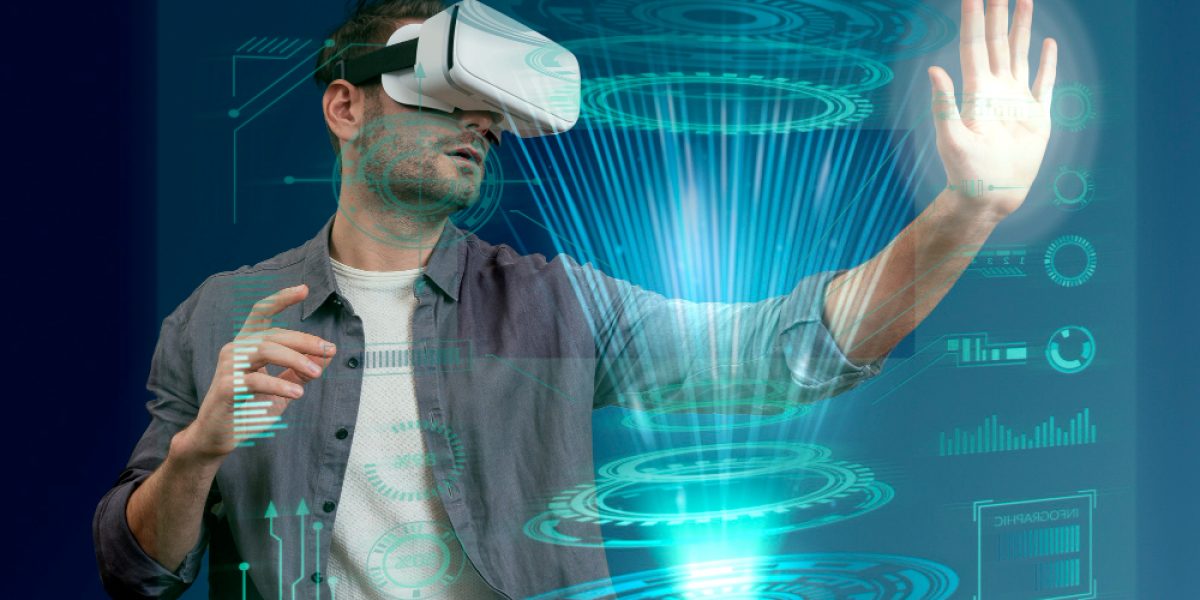The world of technology is constantly changing, and with each year, new innovations emerge that reshape industries and impact daily life. As we approach 2025, we’re on the verge of a new wave of technological advancements that promise to further revolutionize how we live, work, and interact with the world around us. Whether you’re in business, IT, or just a tech enthusiast, understanding these trends will help you stay ahead of the curve.
In this blog, we’ll explore the top IT trends to watch in 2025 and how these emerging technologies are shaping the future.
1. AI and Machine Learning: Smarter Than Ever
Artificial Intelligence (AI) and Machine Learning (ML) have already made their mark, but in 2025, they will be more integrated and smarter than ever before. AI isn’t just about robots anymore; it’s helping businesses make smarter decisions, automating processes, and improving customer experiences in ways we never imagined. From chatbots that provide 24/7 customer service to predictive analytics that can forecast business trends, AI will continue to push boundaries in every industry.
Why it matters:
- Business Efficiency: AI-driven solutions will improve operational efficiency by automating mundane tasks, allowing employees to focus on higher-value work.
- Smarter Decisions: With advanced AI algorithms, businesses can analyze large amounts of data quickly to make informed decisions, improving customer targeting and personalization.
- Healthcare Advancements: AI and ML are already playing a huge role in medical diagnostics, drug discovery, and personalized treatment plans. In 2025, expect even more breakthroughs.
What to watch for: AI-powered solutions will become more accessible to small and medium-sized businesses, making it easier for them to leverage advanced technology to compete with larger companies.
See also: The Role of AI in Shaping the Future of Real Estate and Modern Living
2. 5G and Beyond: Ultra-Fast Connectivity
In 2025, the roll-out of 5G technology will be in full swing, bringing ultra-fast internet speeds to more regions across the globe. This next-generation wireless network promises to revolutionize industries by enabling faster downloads, better connectivity, and improved communication across devices.
Why it matters:
- IoT Explosion: With 5G’s ultra-low latency and high-speed capabilities, the Internet of Things (IoT) will take off. This means more connected devices, from smart homes to connected cars, improving automation in everyday life.
- Remote Work and Collaboration: As remote work continues to thrive, 5G will provide better internet connectivity, making video conferences, cloud-based work tools, and real-time collaboration more efficient.
- Smart Cities: With 5G, cities will become smarter, using data to optimize traffic, energy consumption, waste management, and more, improving the overall quality of life for residents.
What to watch for: Expect more IoT devices, smart city innovations, and improvements in digital experiences powered by 5G technology.
3. Cybersecurity: Defending Against New Threats
As technology evolves, so do the threats. Cybersecurity will remain a top priority in 2025 as businesses and individuals face more sophisticated cyberattacks. From ransomware to data breaches, hackers are constantly finding new ways to exploit vulnerabilities. As a result, companies will need to invest more in advanced cybersecurity measures to protect their data and digital assets.
Why it matters:
- Rise in Attacks: Cyberattacks are becoming more complex, making it harder for traditional security measures to keep up. As more businesses go digital, protecting sensitive data will be crucial.
- AI in Cybersecurity: AI will play a significant role in detecting and responding to security threats in real-time, minimizing damage and preventing breaches before they happen.
- Regulations: Governments are tightening regulations on data protection, making it essential for businesses to comply with privacy laws and standards.
What to watch for: Cybersecurity companies will develop more advanced tools, using AI and machine learning to identify patterns and protect networks from emerging threats.
4. Edge Computing: Bringing Data Closer to the Source
Edge computing refers to processing data closer to where it’s generated, rather than relying on a centralized data center. This technology reduces latency and increases the speed of data processing, making it essential for applications that require real-time analysis, like autonomous vehicles, smart devices, and industrial machinery.
Why it matters:
- Faster Processing: Edge computing reduces the need for data to travel back and forth between a device and a centralized cloud, allowing for faster decision-making.
- Improved IoT: As more devices get connected, edge computing will help handle the data they generate, ensuring smooth operations and reducing network congestion.
- Real-Time Applications: From self-driving cars to remote monitoring in healthcare, edge computing will enable a wide range of real-time applications, making them more efficient and responsive.
What to watch for: With more businesses adopting IoT technologies, edge computing will become a key enabler of innovation across various industries, from manufacturing to healthcare.
5. Blockchain Beyond Cryptocurrency: Expanding Its Reach
Blockchain technology is best known for powering cryptocurrencies like Bitcoin, but in 2025, we’ll see its adoption expand into various industries. Blockchain’s ability to provide secure, transparent, and decentralized record-keeping will find use in supply chain management, healthcare, finance, and more.
Why it matters:
- Transparency and Security: Blockchain’s tamper-proof nature makes it ideal for applications that require secure and transparent records, such as tracking goods in the supply chain or managing medical records.
- Smart Contracts: Blockchain allows for the creation of self-executing contracts that automatically trigger actions when predefined conditions are met, reducing the need for intermediaries.
- Decentralized Finance (DeFi): The rise of blockchain-powered decentralized finance platforms will disrupt traditional banking and financial services, offering more accessible financial services to people around the world.
What to watch for: As industries realize the potential of blockchain, its use will expand beyond finance, helping improve transparency, efficiency, and security in various sectors.
See also: How to Defend Your Small Business from Cyber Attacks in 2025
6. Augmented Reality (AR) and Virtual Reality (VR): Immersive Experiences
AR and VR technologies are already changing the way we interact with the world, and in 2025, they will become more mainstream. From gaming to retail, education to healthcare, AR and VR are creating immersive experiences that enhance how we work and play.
Why it matters:
- Retail and E-Commerce: AR will allow customers to try products virtually before purchasing, improving the shopping experience and reducing returns.
- Education and Training: VR will provide hands-on training in fields like medicine, engineering, and even customer service, creating immersive learning environments.
- Remote Collaboration: VR can enable remote teams to collaborate in a shared virtual space, making it feel like they are working in the same room, even if they’re miles apart.
What to watch for: As AR and VR technologies become more affordable and accessible, we can expect them to become a part of daily life, enhancing everything from shopping to professional development.
7. Quantum Computing: Unlocking Unseen Possibilities
Quantum computing is a cutting-edge field that has the potential to revolutionize industries by solving complex problems that traditional computers can’t handle. While still in its early stages, quantum computing could change everything from cryptography to drug discovery, offering a level of computational power we’ve never seen before.
Why it matters:
- Solving Complex Problems: Quantum computers will be able to process vast amounts of data at unprecedented speeds, enabling breakthroughs in fields like artificial intelligence, materials science, and climate modeling.
- Cybersecurity Advancements: Quantum computing could improve encryption methods, making it harder for hackers to break into secure systems.
- Innovation Across Industries: From optimizing logistics to accelerating medical research, quantum computing will enable innovations across a wide range of sectors.
What to watch for: While quantum computing is still in the research phase, expect to see major advancements in the next few years, with industries starting to explore its practical applications.
Conclusion
The IT landscape in 2025 is set to be a year of transformation. With emerging technologies like AI, 5G, edge computing, and blockchain, we’ll witness a wave of innovation that will change how businesses operate and how we experience the world. From smarter AI to immersive AR experiences, these trends will shape the future, providing new opportunities and challenges along the way.












